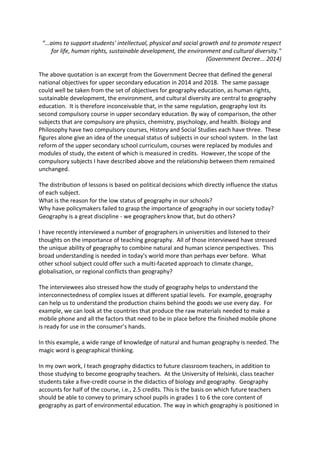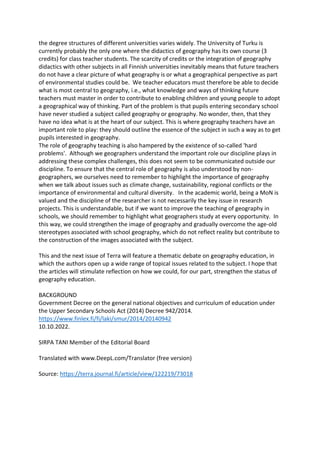The document discusses the low status of geography education in Finnish schools. It notes that geography has lost its second compulsory course at the upper secondary level, while other subjects like biology and history have two or three compulsory courses. The distribution of lessons across subjects is based on political decisions that influence their status. Geography teachers and university educators argue that geography is uniquely positioned to study complex issues like climate change and sustainability from both natural and human perspectives. However, geography's importance is not adequately communicated outside the field, contributing to outdated stereotypes about the subject. The document calls for geographers to better promote geography's central role when discussing major challenges in order to improve its status in education.

